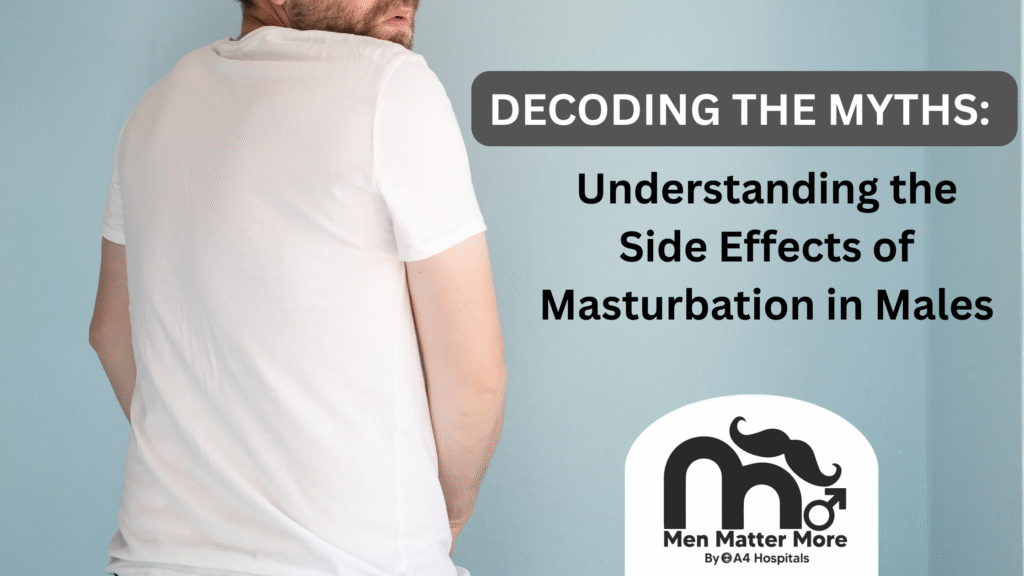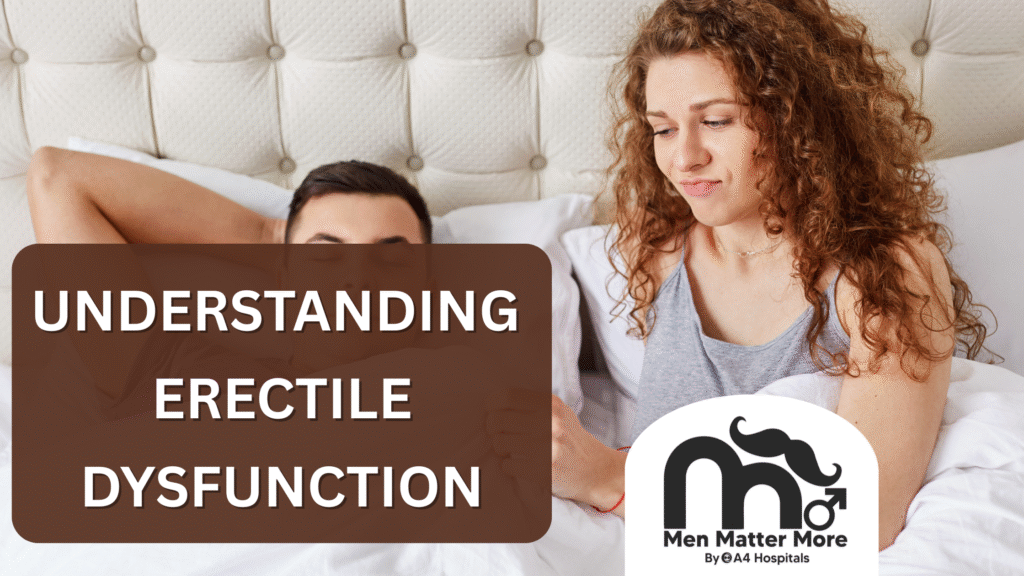Erectile Dysfunction (ED) is a common but often under-discussed issue affecting men across all age groups, especially after the age of 40. It refers to the consistent inability to achieve or maintain an erection firm enough for satisfactory sexual intercourse. ED is not just a physical problem—it can also impact emotional well-being, relationships, and overall quality of life.
What Causes Erectile Dysfunction?
Erectile Dysfunction can be caused by various physical and psychological factors, including:
1. Physical Causes
- Cardiovascular disease: Poor blood flow to the penis due to narrowed blood vessels.
- Diabetes: High blood sugar damages nerves and blood vessels.
- High blood pressure and cholesterol: Affects blood circulation.
- Obesity: Linked to hormonal imbalances and vascular disease.
- Hormonal imbalances: Low testosterone or thyroid issues.
- Medications: Some antidepressants, antihypertensives, and anti-anxiety drugs.
- Smoking and alcohol: Both restrict blood flow and affect erection quality.
2. Psychological Causes
- Stress: Work, financial, or family stress can interfere with sexual desire and performance.
- Anxiety: Performance anxiety is a common cause, especially in younger men.
- Depression: Low mood can reduce interest in sexual activity.
- Relationship problems: Lack of emotional connection or communication.
Symptoms of Erectile Dysfunction
- Trouble getting an erection
- Difficulty maintaining an erection during sex
- Reduced sexual desire
Occasional difficulty with erections is normal. But frequent problems can indicate ED and warrant evaluation.
How is Erectile Dysfunction Diagnosed?
Your doctor will begin with a detailed medical, sexual, and psychological history, followed by:
- Physical examination
- Blood tests (to check for diabetes, testosterone levels, thyroid function, etc.)
- Penile Doppler ultrasound (to assess blood flow)
- Nocturnal penile tumescence test (to monitor nighttime erections)
- Psychological evaluation, if needed
Treatment Options for Erectile Dysfunction
The treatment depends on the underlying cause. Options include:
1. Lifestyle Changes
- Quit smoking and alcohol
- Exercise regularly
- Eat a heart-healthy diet
- Manage stress and sleep
2. Medications
- Oral tablets: Sildenafil (Viagra), Tadalafil (Cialis), Vardenafil
- Hormonal therapy: For men with low testosterone
- Injections: Alprostadil directly into the penis
- Penile suppositories: Inserted into the urethra
3. Medical Devices
- Vacuum erection devices: Create a vacuum to draw blood into the penis
- Penile implants: Surgically placed devices for long-term ED
4. Psychological Counseling
For men with stress, anxiety, or depression contributing to ED.
Erectile Dysfunction and Fertility
While ED doesn’t directly affect sperm count or motility, it can prevent regular intercourse and reduce chances of conception. In fertility clinics, ED is a common concern among couples trying to conceive, especially under performance pressure. Timely medical support can restore both confidence and fertility prospects.
When to See a Doctor?
Consult a doctor if:
- You have persistent difficulty in getting or keeping an erection
- You’re concerned about sexual performance or fertility
- ED is affecting your relationship or mental health
- Call : 98401 58401
Conclusion
Erectile Dysfunction is a treatable condition. With the right diagnosis and personalized care, most men can overcome ED and regain a satisfying sex life. At A4 Male Fertility Clinic, we offer confidential consultations and comprehensive treatment plans tailored to your needs.
Know more!

